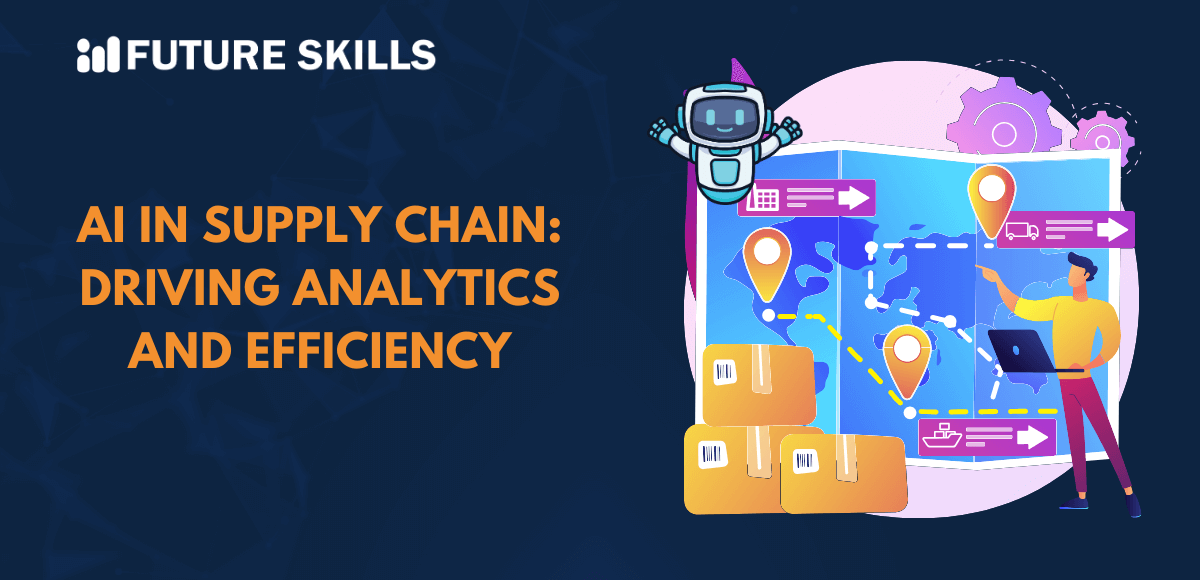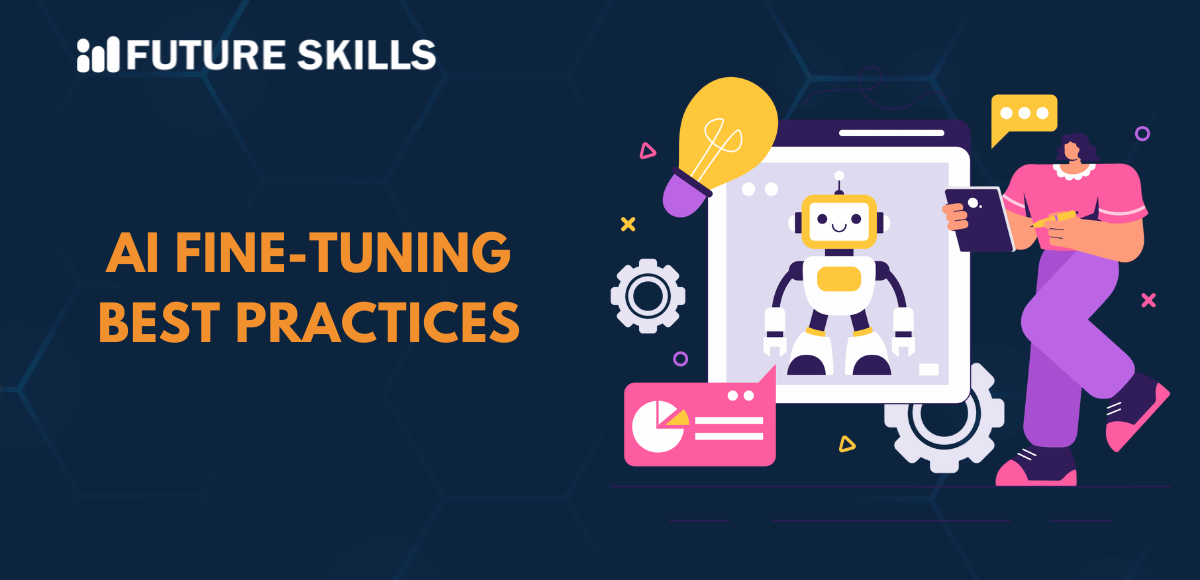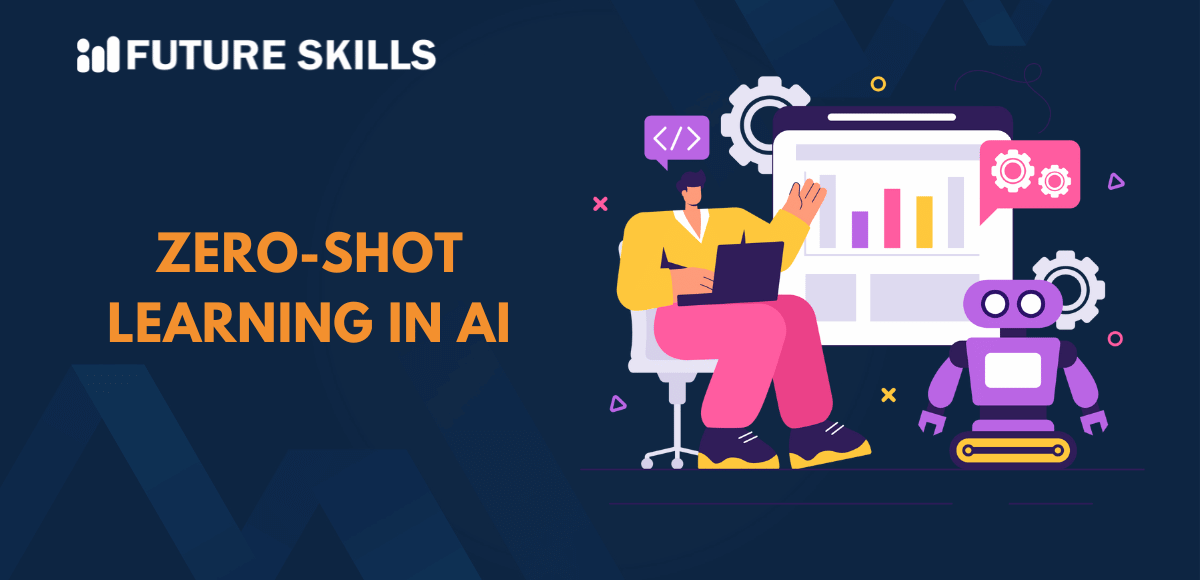Artificial intelligence had been restricted to technical documentation and discussions between tech enthusiasts before the arrival of ChatGPT. Almost everyone using the internet knows about the capabilities of generative AI and what it can achieve in future. With the arrival of large language models and generative AI tools, people began to embrace artificial intelligence as mainstream technology. You can discover various use cases of artificial intelligence in supply chain management and other industries that have delivered promising improvements. Let us learn more about the distinct ways in which AI has improved supply chain analytics.
Learn artificial intelligence with our structured AI Certification Course and explore new career opportunities.
Exploring the Role of AI in Supply Chain Management
Among the many industries that had to bear the burden of disruptions due to a global pandemic, the supply chain industry faced the most difficulties. Almost every business experienced problems due to prolonged delays in delivery of products, thereby drawing attention towards the need for improving supply chains. Therefore, companies have turned to AI in large numbers for plausible enhancements in supply chain management. Artificial intelligence has the capability to introduce revolutionary changes in different business processes, leading to better efficiency and smarter decisions.
The applications of AI in supply chain management have introduced improvements that are clearly visible and prove the significance of artificial intelligence as a transformative force. Companies have used AI to streamline inventory management, create real-time delivery controls and establish dynamic logistics systems. Most of the companies that have used AI in their supply chain report quantitative enhancements in productivity and efficiency. Another promising improvement induced by the introduction of AI in supply chain management is sustainability.
The answers to questions like “What is artificial intelligence in supply chain management?” will also draw your attention towards the benefit of cost saving. AI is more than just a technology that businesses can use to fuel the digital transformation of their supply chains. Artificial intelligence helps in reducing costs of supply chain management alongside adding value to different stages of supply chain planning. For instance, AI can improve processes in inventory management, production, and product distribution. Most important of all, artificial intelligence creates opportunities to address the potential risks emerging with new technologies.
Discovering the Power of Artificial Intelligence in Analytics
The impact of AI on supply chain management and its benefits reveal the actual reasons behind growing adoption of AI tools in supply chains worldwide. While companies may have different reasons to adopt artificial intelligence in their supply chains, AI introduces fundamental changes in various business processes.
You must have noticed that AI depends on machine learning, which in turn depends on massive collections of training data. Businesses can use this intricate relationship to their advantage and introduce AI in supply chain analytics to gain better insights. Artificial intelligence can help in improving the workflow of supply chain analytics to use large volumes of data for better forecasts.
Businesses can use AI to transform supply chain analytics in different areas, including predictive analytics, cognitive analytics, descriptive analytics and prescriptive analytics. The review of the effect of AI on different aspects of supply chain analytics can help you understand the transformative potential of artificial intelligence.
-
Predictive Analytics
The applications of artificial intelligence in supply chain analytics can help in identifying and understanding trends in historical data. AI can ensure accurate predictions for likely outcomes and their business implications. Businesses can use AI for predictive analytics in their supply chain to ensure effective risk mitigation.
-
Cognitive Analytics
Consumers are the most valuable resources for any organization and their experience with your business determines the extent of their association with your brand. Cognitive analytics on supply chain data helps in improve customer experiences by evaluating feedback data.
You can find a good answer to questions like “What is artificial intelligence in supply chain analytics?” with insights on working of AI-powered cognitive analytics. AI systems can analyze large collections of feedback data to create reports and dashboards that offer answers to complex queries. Most important of all, businesses can use AI in cognitive analytics to encourage innovation in supply chain management and user experiences.
-
Descriptive Analytics
The use of artificial intelligence in supply chain analytics also draws attention towards descriptive analytics. Artificial intelligence can help in using historical data to draw accurate estimates of trends and valuable insights for decision-making. AI supports businesses in capitalizing on the maximum value of descriptive analysis with complete visibility into all types of data in supply chain management.
-
Prescriptive Analytics
Supply chain analytics would be incomplete without prescriptive analytics as it deals with predictions on impact of specific changes on desired outcomes. Some of the most popular AI in supply chain analytics examples can showcase the different ways in which AI contributes to improvements in prescriptive analytics. AI-driven tools in supply chain management can identify and recommend potential enhancements in supply chain operations. For instance, AI tools can recommend collaborations with certain logistic partners to achieve maximum business value.
Take your AI expertise to next level with our popular AI for Business Course and learn how AI can be beneficial for businesses.
Examples of Using AI for Data Analytics in Supply Chains
Businesses must empower their supply chains with reliable AI tools to achieve promising improvements. The different use cases of artificial intelligence in supply chain analytics can help you figure out the reasons to invest in AI. The following examples offer a brief overview of the implications of using AI in supply chain data analytics.
-
Maintenance Recommendations for Vehicles
IoT devices serve as useful resources to obtain real-time insights on the health of transport vehicles which are on the road. AI systems can amplify the usability of IoT devices by recommending maintenance schedules and predictions for machine failure, according to historical data. As a result, AI-powered supply chain analytics can help businesses remove faulty vehicles from the chain, thereby preventing any delays.
-
Strategic Sourcing
The use cases of artificial intelligence in supply chain management focus on analytics when it comes to making important decisions. Artificial intelligence enhances accuracy of analytics and helps in identifying strategic partners as well as critical suppliers. It serves as a promising intervention for standardizing low-cost alternatives and creating supply performance indicators to monitor compliance.
-
Saving Costs and Boosting Revenue
Supply chain analytics tools with AI are the best options to negotiate better prices for procurement and shipping. You can also rely on AI supply chain analytics to ensure effective management of courier contacts and identify changes in the process to extract supply chain profits. Advanced analytics also provide the foundation for new and innovative solutions that can guide businesses towards more cost-effective options to build revenue.
-
Portability for Supply Chain Loading
The supply chain management process also involves loading and unloading shipments from the containers. With the help of AI in supply chain analytics, you can use data modeling to identify the most efficient ways for loading and unloading goods from the containers. AI can improve supply chain analytics to a level where companies can enjoy real-time visibility of the loading process. The data on the loading process can also help in designing faster process protocols for managing parcels with reduced risks.
-
Effective Responses to Disruptions
The impact of natural disasters or pandemics can create disruptions in supply chains. Artificial intelligence can improve supply chain analytics and provides the ideal resource to stand against disruptive changes. AI can play a major role in improving resilience of supply chains along with other technologies such as blockchain, data analytics, and IoT. AI tools can detect discrepancies in supply and demand to avoid any negative impact due to delay in incident response. On top of it, AI tools also help in simulating the different response strategies to determine their effectiveness. Artificial intelligence can not only help a business respond to supply chain crisis but also makes their supply chains stronger.
Get to learn AI ethics and how crucial it is in the evolving world of artificial intelligence with our Ethics of AI Course. Enroll today!
Challenges for Artificial Intelligence in Supply Chain Analytics
The necessity of data analytics in supply chain management provides a clear glimpse of the reasons to embrace artificial intelligence in supply chain analytics. However, the practical applications of AI in supply chain analytics examples demand attention to certain challenges. The most prominent challenges in the use of AI for supply chain analytics include data quality and data privacy. In addition, you must also focus on the limitations of ethical considerations and possibilities of bias in decisions made by AI tools.
Data quality is an important factor for effectiveness of AI-based supply chain analytics. You can achieve better data quality through effective data governance practices. On the other hand, data privacy is still a huge challenge for organizations in various domains. Data privacy for AI systems requires compliance with data protection regulations and stronger security measures.
Final Thoughts
The benefits and challenges of embracing artificial intelligence in supply chains have shifted the attention towards utility of AI. As you discover new use cases of AI in different industries, the supply chain industry must not be an exception. It is important to reflect on different possibilities of using artificial intelligence in supply chain analytics. Artificial intelligence can process huge datasets and provide useful insights that help in making better decisions. Discover the different ways in which artificial intelligence can transform supply chain management with credible learning resources right now.







